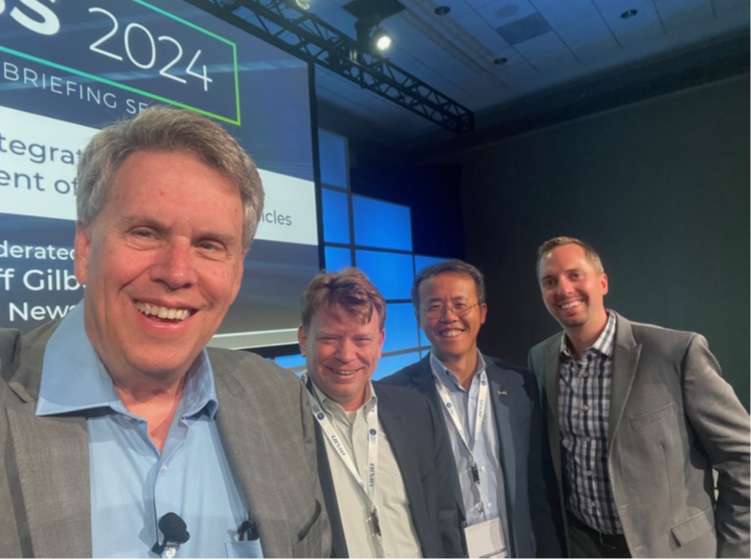Trump's return and its consequences for the industry
With Donald Trump's return to the White House, the global industry is facing a turning point. In the following interview, Prof Dr Joachim Taiber, Chairman of the AI-Assurance-in-Mobility North America Congress, outlines the far-reaching consequences of protectionist measures through to innovation boosts in autonomous driving - an era of strategic adjustments is beginning.
Prof Taiber, the US election has been decided. Trump will be sworn in as the 47th US President in January 2025. Many german companies are already looking towards the USA with concern – what’s your opinion?
From a mobility perspective, we should first note that the Trump administration is prioritising innovation, safety, efficiency and rebuilding the transport infrastructure. It is to be expected that local supply chains, local suppliers and local production facilities will be strengthened - i.e. the government will place the highest value on local value creation.
For German companies, this means that they will have to focus even more intensively on the localisation of research & development and production.

What can we expect when it comes to the use of AI, for example in autonomous driving? What influence will Elon Musk have as one of Trump's sparring partners?
The US is already technologically very strong in AI through its big tech companies that are investing heavily in autonomous driving - think Google and Amazon.
Tesla is much more aligned with these tech companies than the traditional car companies and Elon Musk certainly has a big influence on the new administration's technology policy. This will initially have a positive effect on the general investment climate: Share prices are rising, company valuations are increasing, the willingness to invest in high-risk technologies is going up.
However, Elon Musk also believes that national regulation is necessary for the scaled deployment of autonomous driving, and this requires the adaptation of standards and regulations.
In general, the Trump administration is in favour of de-regulation and unleashing innovative market forces, the Biden administration was much more fixated on regulation and market control (e.g. when buying EV vehicles) as well as protecting jobs (hence no progress on autonomous driving legislation), this will now change.
I think autonomous driving will receive a boost in innovation. This could benefit not only the USA, but also the rest of the world.
How can European/German companies prepare for the new phase of transatlantic economic relations?
It will become important to observe Trump's behaviour with regard to China. Many European companies have favoured Mexico as a production location in the NAFTA region for cost reasons, but also Chinese suppliers.
The Trump government clearly favours supply chains in the USA (and not NAFTA) and is taking a protectionist stance towards China - but this does not mean that there could be a deal with China to set up US factories and local engineering centres.
My advice to European and German companies is to quickly develop their capabilities and expand their expertise to incorporate ‘local content’ into their products and services in accordance with legal and market requirements, at competitive prices and quality, with maximum adaptability in a very short time.